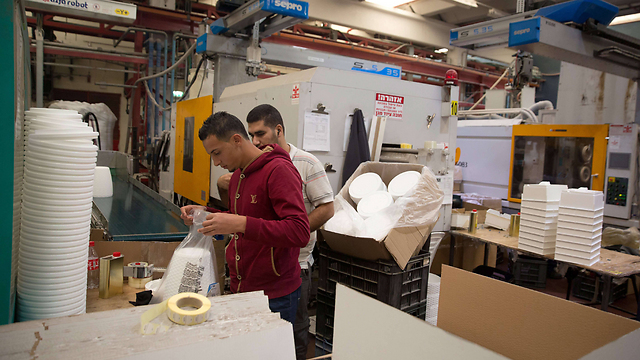Op-ed: There are thousands of conflict areas around the world, and hundreds of areas in which the EU doesn’t recognize the sovereign government, yet Europe chooses to label products from one region only.
The public debate in Israel over the European Union’s initiative to label Israeli products manufactured beyond the Green Line usually avoids addressing the most troubling aspect of the initiative: The fact that of all the regions in the world subject to a certain sovereignty conflict, the EU has only chosen to label products originating in the area of conflict related to the Jewish state.
There are thousands of regions around the world subject to a certain sovereignty conflict, and in hundreds of them the EU itself does not recognize the sovereign government. In many of these regions, there are even United Nations resolutions which define them as “occupied” or “conflict regions.” Of all these, Europe chooses to label products from one region only.
The Kashmir region has been subject to a conflict between India and Pakistan since 1947, the two states do not recognize each other’s territorial claims to the region, and it is defined by the international community as a disputed territory with an undefined border. Has the EU demanded from India or Pakistan special labeling for products originating in their territories in Kashmir?
Tibet was an independent state for many years, until it was occupied by the Chinese army in 1958 and unilaterally annexed by Beijing. The Tibetan government led by the Dalai Lama was exiled, and the Tibetan people have since been subject to a cruel occupation regime that is trying to annihilate their culture. Has the EU demanded that China label products manufactured in occupied Tibet?

In 1975, when Spanish colonial rule ended in the Western Sahara colony, Morocco invaded the region and unilaterally annexed it. Since then, the Plisario Front has been waging an ongoing struggle to liberate the country from the Moroccan occupation, which has led to the exile of hundreds of thousands of Sahrawis from their country and established settlements with a Moroccan population. The UN does not recognize the Moroccan occupation of the region, and the African Union has even suspended Morocco’s membership in the organization for its invasion of the region. Has the EU demanded that Morocco label products manufactured in the occupied Western Sahara region?
In 1974, the Turkish army invaded Northern Cyprus, expelled hundreds of thousands of Greek speakers from the region and established the Turkish Republic of Northern Cyprus, while the southern part of the Island is ruled by the Cypriot government which is recognized by all international institutions. The Cypriot case is particularly significant because in 2004 Cyprus joined the EU, so the Turkish occupation in Northern Cyprus is taking place on sovereign European territory. Is the EU demanding that Turkey label products manufactured in its Northern Cyprus “republic”?
In 2014, Russia annexed the Crimean Peninsula, after taking over the region militarily and conducting a “referendum” there. The world, including Europe of course, does not recognize the referendum or the annexation. Has the EU demanded that Russia label products manufactured in annexed Crimea?
There is not enough room to cover all the cases around the world and in Europe itself, but the pictures seems clear. If the answer to all these questions is no, there is no escape from the conclusion that while the EU has failed to impose separate labeling in all the discussed areas, it has chosen to label Jewish products only.
As reported by Ynetnews
